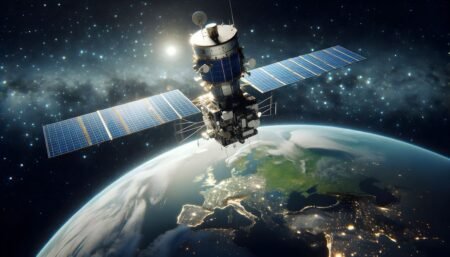The European Commission presented its midterm review on the development of Europes satellite navigation programmes Galileo and EGNOS. Recent progress in the development of Galileo, including the signature of four major contracts and the testing of the first four operational satellites, means that the satellite navigation system will deliver initial services in 2014.
Advertisement
It is expected to help secure a bigger share of the space technology market and bring European independence in a sector that is important for its economy and for the well-being of its citizens. There has also been considerable progress with the EGNOS programme which increases the accuracy of signals from satellite navigation systems. The promotion of satellite navigation technology is in line with Europe’s 2020 strategy and contributes to sustainable economic development.
European Commission Vice-President Antonio Tajani, Commissioner for Industry and Entrepreneurship said: “Galileo will allow Europe to compete in the global space technology market and to impose itself as one of the leading players in a growing sector characterised by increased internationalisation and the entry of emerging economies. We are satisfied with the progress made so far and committed to bringing this project to fruition.”
The global satellite navigation applications market is expected to be worth 240 billion by 2020 and has been growing at a rate of 30% in the past few years. It is estimated that currently 6-7% of GDP of developed countries, 800 billion in Europe, depends on satellite navigation. The EU budget will finance the European satellite navigation programmes Galileo and EGNOS with 3.4 billion over the 20072013 period. It is estimated that 1.9 billion will be necessary for the 20142020 period to complete the Galileo infrastructure. The operational costs of Galileo and EGNOS together are estimated at an annual 800 million. These estimates are provisional and without prejudice to the future multiannual financial framework of the EU budget.
Achievements
EGNOS operational: EGNOS became officially operational on 1 October 2009. The increased accuracy of satellite navigation that EGNOS provides already benefits many users, notably in the domains of agriculture, rescue operations, geo-localisation and cartography. It will soon also be used in civil aviation.
Galileo in-orbit validation phase well underway: The two experimental satellites Giove A and Giove B are securing the frequencies and determining the reliability of the technology used. The building of the first four operational satellites, which are part of the in-orbit validation phase and will be launched in 20112012, is nearing completion as is the creation of the associated ground based infrastructure, including the ground control centres in Fucino, Italy, and Oberpfaffenhofen, Germany.
Contracts allocated for the deployment of Galileo: The deployment phase began in 2008 and work has been divided into six lots which have all been opened to public procurement markets. The first four lots – i.e. engineering support, construction of the satellites (with an order placed for 14), launch services and operations – were all allocated in 2010 for roughly 1250 million. The final two lots, which concern ground infrastructure, will be allocated in 2011.
Secure satellite navigation for emergency and security services: A special Galileo navigation service will be set up for better management of critical transport and emergency services, better law enforcement (police), improved internal security (border control) and safer peace missions. These are the core objectives of a European Commission proposal published in October 2010 on the Public Regulated Service (PRS) access rules. Using highly encrypted signals, PRS will offer protection against threats to infrastructures dependent on satellite navigation technology.
International cooperation: Regarding the international aspect of the programme, the compatibility between the EU system and those from China, the United States, Russia, Japan and India is being discussed with each nation and within a UN context. Norway participates and has contributed to the funding of the program, and there are on-going negotiations with Switzerland.
Background
The Galileo programme is Europe’s initiative for a state-of-the-art global satellite navigation system, providing a highly accurate, guaranteed global positioning service under civilian control. Galileo will provide five services. Three early services will be provided in 2014 based on an initial constellation of 18 satellites: an initial Open Service, an initial Public Regulated Service and an initial Search And Rescue Service. The Safety-of-Life Service and the Commercial Service will be tested as of 2014 and will be provided as the system reaches full operational capability with 30 satellites in the coming years.
EGNOS (European Geostationary Navigation Overlay Service) is Europes regional augmentation system for GPS signals. It is the precursor to Galileo.
The midterm review is foreseen in Regulation (EC) No 683/2008 of 9 July 2008 on the further implementation of the European satellite navigation programmes EGNOS and Galileo.
More information on the website of DG Enterprise and Industry


